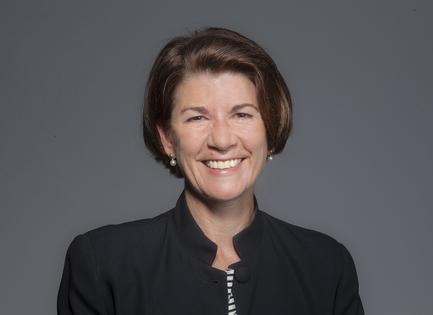Ask Amy: Credit card accounts churn up concern
Dear Amy: I need some advice. For the last five years, my husband has been churning credit cards (opening up credit card accounts solely for the opening bonus, then closing them after the bonus is received). He opens cards in both his name and mine.
This is legal, as far as I know.
He's very organized, and we've never accumulated any interest or any fees.
I've recently started to feel uneasy about this and want him to stop doing this using my name.
When he started doing this, I was young and thought he knew best, so I didn't question him.
I'm worried that he will get annoyed with me for suddenly not feeling good about this. I'm worried that he will be upset for my sudden interest in financial matters and the fact that he will lose out on half of the bonus money he receives from opening these accounts.
Thanks!
– Churning concerns
Dear Churning: Credit card “churning” is the practice of opening a new card that offers a bonus (for instance: “Earn a $200 bonus after you spend $500 on purchases in the first three months from account opening.”)
Churners open the card, spend the $500 on expenses they would have paid, anyway, collect the bonus in the form of cash back or reward points, and then stop using the card (or close it) once the bonus has been received and spent.
This is not illegal, although it is frowned upon (by card issuers) and can negatively affect your credit score if you miss a payment or hold too many cards.
Given that these bonuses are issued by credit card companies that are aggressively marketing their products for people to use their cards (especially profiting from people who don’t repay them promptly, which allows them to jack up interest rates), it seems logical that some savvy consumers will find a way to take all of that predatory energy and direct it right back at the company. Your husband is one of those savvy consumers.
The most important thing for you to know is that you have the right to disagree with a financial decision, especially one that involves your name and your credit.
He should not be opening credit card accounts in your name.
Your fear that your husband might be “annoyed” or “upset” with you for making a decision that affects both of you is a red flag that you don’t have an equal voice in your relationship.
Yes, you should be intensely interested and intimately involved in your marital finances.
You should also check your own credit score to see if this has affected your credit.
Dear Amy: My son met a woman online about 18 months ago.
Their relationship progressed to a point where he visited her for a couple of weeks and has now decided to move out of state to be with her and her children.
I haven’t met his girlfriend or her children yet, but at some point we’ll probably have a video call with them.
With the holidays approaching, my wife and I are unsure about what we should do for gifts, since we’ve never met them.
This is uncharted territory for us.
– Ed
Dear Ed: You should ask your son for guidance. For the next little while, it will be his job to help build a bridge between his parents and his partner and her children.
Keep your offerings modest, and as an extra little nod to his new partner, you might send her a specialty from your home region: a piece of locally made pottery, or honey, syrup, or hot sauce. Let her know that you are looking forward to meeting her and the children.
Dear Amy: I love your column. I do have a comment on “Southern Bride,” whose hubby wants her to clean out her retirement account to fund their house.
Taking money from retirement accounts such as 401(k)s before the age of 59-1/2 will trigger a 10 percent penalty.
And even though this is (ideally) a temporary withdrawal, the money cannot just be redeposited once she gets it back, as there are limits to annual contributions.
I would agree with you that the realtor's plan for the husband to fund this house purchase with proceeds from his house sale is far superior, and it also relieves the bride's worry that the groom will not repay.
– In the Know
Dear In the Know: “Southern Bride” didn’t note where her retirement savings were invested, but thank you very much for considering the tax implications.
========
(You can email Amy Dickinson at askamy@amydickinson.com or send a letter to Ask Amy, P.O. Box 194, Freeville, NY 13068. You can also follow her on Twitter @askingamy or Facebook.)
©2021 Amy Dickinson. Distributed by Tribune Content Agency, LLC.










